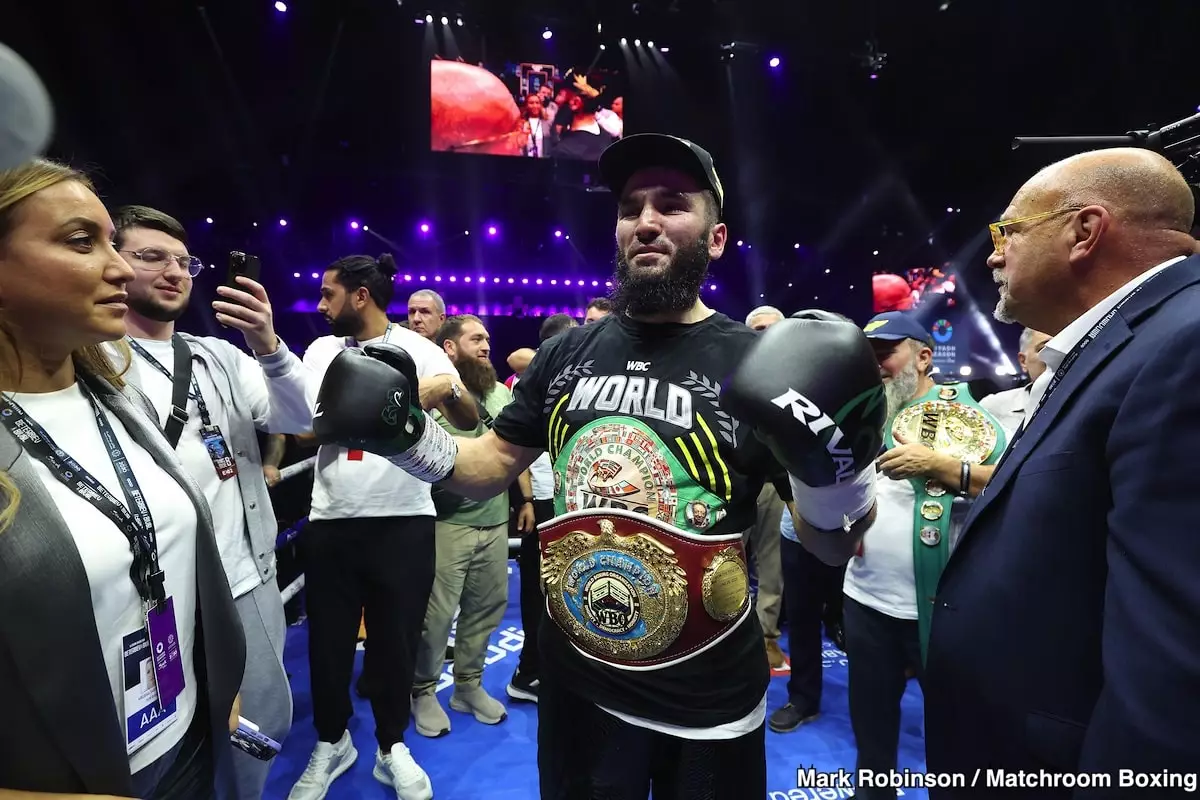In the illustrious realm of boxing, few events carry as much weight as a unification fight, where champions aim to consolidate their titles and claim dominance in their weight class. The recent bout between Artur Beterbiev and Dmitry Bivol offered just such a high-stakes encounter, yet instead of celebrating exceptional athleticism, the boxing community found itself embroiled in another heated debate—one centered on officiating decisions. After twelve riveting rounds in Riyadh, the conversation shifted away from the fighters’ talent and skill towards the questionable judgment of the ringside judges, casting a pall over the sport once again.
Both fighters entered the ring with impressive records and reputations, captivating audiences with their prowess. Beterbiev, known for his raw power and lethal knockout ratio, faced off against Bivol, a nuanced strategist who danced his way through the competition. From the opening bell, fans were treated to a masterclass in boxing technique, with each fighter exchanging blows and showcasing their unique styles. Bivol excelled in his ability to evade and counter Beterbiev’s fierce punches, yet the fight was marked by an undercurrent of tension that suggested the outcome could hinge on a few pivotal moments.
While engaging in tactical maneuvers, Bivol seemed to take control of the narrative as he boxed with a level of skill few expected. His footwork and agility allowed him to navigate Beterbiev’s attempts to corner him, providing glimpses of brilliance that suggested he was not just surviving but thriving under pressure. The fight reached its climax as spectators eagerly anticipated the judges’ verdict, hoping to witness a fair acknowledgment of dedication and talent.
The Fallout: Questionable Judgments
As the decisions were announced, the atmosphere shifted dramatically. The scores—114-114 from one judge and 115-113 and 116-112 in favor of Beterbiev—sparked immediate outcry. Many in attendance and watching from home found the scores confounding, given the nature of Bivol’s performance. This was not just a matter of differing interpretations; it felt like a blatant dismissal of skill and hard work. The scoring has raised eyebrows and ignited discussions about the reliability of judges in a sport where every point carries immense significance.
In these moments, boxing fans and analysts alike are quick to recall other contentious decisions in history. The infamous “R” word—robbery—floated in the air, tainting what should have been a celebration of athletic achievement. Bivol’s post-fight demeanor stood in stark contrast to the outrage brewing around him. While many fighters would vocally contest such a decision, Bivol opted for grace under fire, showcasing a level of professionalism that deserves commendation. This response, however admirable, can do little to change the perception that a victory was unjustly snatched away.
Repercussions for the Sport
The aftermath of the decision has wider implications for the sport of boxing. Promoters and fans will rightly question the motivations behind the official scores. If no foul play is alleged, what then? Is it a systemic issue stemming from a lack of proper training for judges, or does it signify a troubling trend of inconsistent scoring? The sport finds itself with a blemish on its name, and experts predict a rematch will be inevitable, as the demand for clarity and resolution grows. But what will a rematch achieve if the same issues linger?
For billions of boxing enthusiasts, the disturbing trend of mismanagement during fights not only robs fighters of their hard-earned accolades but also undermines the sport’s integrity. As each controversy surfaces, the eroded trust casts doubt on future matches—will fans ever be convinced that the best man wins?
This latest episode serves as a poignant reminder of the pressing need for reform within boxing’s judging system. It’s essential that the authorities in boxing address these discrepancies with urgency. Advocating for transparency, proper training, and perhaps even extensive revisions to how rounds are scored could foster an environment where fair competition is paramount and celebrated. Boxing should be a domain where athletes can earn their victories through skill, determination, and strategy—not through the ambiguous lens of subjectivity in scoring.
While Beterbiev has enhanced his impressive record, for many, the true champion of the night was Bivol. With the fans rallying behind their fighter, the hope is for a swift rematch that will either redeem or reaffirm the outcome. Unquestionably, the real prize here is the quality of officiating that must evolve if boxing is to maintain its prestigious legacy and respect among sports worldwide.

